Oliver G. Schmidt holds the chair for Material Systems for Nanoelectronics at the Chemnitz University of Technology, Germany, is adjunct Professor for Nanophysics at the Dresden University of Technology, Germany and is member of the German National Academy of Science and Engineering (acatech). His professional activities range from nanomaterials design and flexible electronics to microfluidics, small scale robotics and biomedical applications. He has received several high-profile awards: the Otto-Hahn Medal from the Max-Planck-Society in 2000, the Philip-Morris Research Award in 2002, the Carus-Medal from the German Academy of Natural Scientists Leopoldina in 2005, the International Dresden Barkhausen Award in 2013, the Leibniz-Prize of the German Research Foundation in 2018, and an ERC Advanced Grant in 2019.
List of 2023 IUMRS-Frontier Materials Awards Winners
1. IUMRS-Frontier Materials Scientists Award| Name | Gender | Affiliation/ Country or Area | Title | Recommended by | |
|---|---|---|---|---|---|
| 1 | Oliver Schimdt | M | Chemnitz University of Technology, Germany | Professor | Gaoshan Huang Yongfeng Mei |
| 3 | Hua Zhang | M | City University of Hong Kong, China | Professor | Jian Lu |

Oliver G. Schmidt
Chemnitz University of Technology, Germany
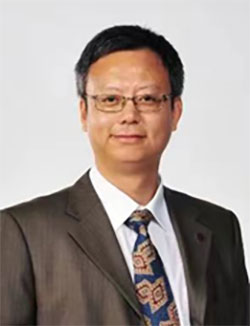
Hua Zhang
City University of Hong Kong, China
Hua Zhang is professor of City University of Hong Kong, China. His Research areas are phase engineering of nanomaterials (PEN) and controlled epitaxial growth of heterostructures, including the synthesis of ultrathin two-dimensional nanomaterials, novel metallic and semiconducting nanomaterials, novel amorphous nanomaterials, and their hybrid composites for various applications, such as catalysis, clean energy, (opto-)electronic devices, chemical and biosensors, and water remediation. He has published 6 invited book chapters, 80+ patent applications (including granted 1 China patent, 1 European patent, 3 Singapore patents, and 10 US patents), and over 500 papers. Some of his papers have been published/accepted in Nature (1), Science (1), Nat. Mater. (3), Nat. Chem. (5), Nat. Catal. (2), Nat. Rev. Mater. (2), Nat. Rev. Chem. (1), Nat. Commun. (13), Sci. Adv. (2), Nat. Protocols (1), Chem. Rev. (3), Chem. Soc. Rev. (16), Acc. Chem. Res. (4), Acc. Mater. Res. (1), J. Am. Chem. Soc. (29), Angew. Chem. Int. Ed. (29), Adv. Mater. (74), Energy Environ. Sci (12), Adv. Energy Mater. (9), Chem (3), Natl. Sci. Rev. (4), ACS Nano (33), Nano Lett. (17), Adv. Funct. Mater. (5), Matter (2), etc. As at August 2023, the total cited times are over 115,000 with H-index of 170 (Web of Science), and over 135,000 with H-index of 180 (Google Scholar). He has been invited to give more than 300 Plenary, Keynote or Invited Talks in international conferences, universities and institutes. He has organized several tens of international conferences and served as the Conference (Co-)Chair or Symposium Chair. He is the co-Editor-in-Chief of SmartMat (2020-) andco-Chairman of the Editorial Board of ChemNanoMat (2015-), and sits/has sat on the Editorial/Advisory Board of more than 30 journals, such as Chemical Society Reviews (2012-2019), Matter (2019-), ACS Nano (2014-), Advanced Functional Materials (2018-), Advanced Materials (2019-), Small (2012-), CHEM (2016-), National Science Review (2023-), Research (2021), The Innovation (2020-), etc.
In 2020, he was elected as a Foreign Fellow of the European Academy of Sciences (EurASc). In 2015, he was elected as an Academician of the Asia Pacific Academy of Materials (APAM). In Nov. 2014, he was elected as a Fellow of the Royal Society of Chemistry (FRSC). In 2016, he was listed in the top 300 most cited researchers in the field of materials science and engineering (Elsevier Scopus). In 2022, he was listed in the "Highly Cited Researchers" in Chemistry, Environment and Ecology, and Materials Science (Clarivate Analytics). In 2015-2021 (7 consecutive years), he was listed in the "Highly Cited Researchers" in Chemistry and Materials Science (Clarivate Analytics/Thomson Reuters). In 2015, he was listed as one of 19 “Hottest Researchers of Today” in the world in the World’s Most Influential Scientific Minds 2015 (Thomson Reuters, 2015). In 2014, he was listed in the "Highly Cited Researchers 2014" in Materials Science, and also listed as one of 17 “Hottest Researchers of Today” and No. 1 in Materials and More in the world in the World’s Most Influential Scientific Minds 2014 (Thomson Reuters, 2014). Moreover, he got the EcoMat Mid-Career Research Award (2023, Wiley-VCH), Outstanding Research Award (2022, City University of Hong Kong), President’s Award (2021, City University of Hong Kong), Young Investigator Award (Young Giants of Nanoscience 2016, Hong Kong), Vice-Chancellor’s International Scholar Award (University of Wollongong, Australia, 2016), ACS Nano Lectureship Award (2015), World Cultural Council (WCC) Special Recognition Award (2013), the ONASSIS Foundation Lectureship (Greece, 2013), Asian Rising Stars (15th Asian Chemical Congress, 2013), SMALL Young Innovator Award(Wiley-VCH, 2012) and Nanyang Award for Research Excellence (2011).
2. IUMRS-Frontier Materials Young Scientists Award
| Name | Gender | Affiliation/ Country or Area | Title | Recommended by | |
| 1 | Hin-Iap Yip | M | City University of Hang Kong, China | Professor | Xiaocheng Zeng, Alex Jen, Zhiyong Fan |
| 2 | Lidong Zhao | M | Beihang University, China | Professor | Yuan Deng |
| 3 | Shutao Wang | M | Technical Institute of Physics and Chemistry, CAS, China | Professor | Lei Liang, Xiaodong Chen |
| 4 | Lei Liao | M | Hunan University China | Professor | Xiangfeng Duan, Jun He |
| 5 | Zijian Zheng | M | The Hong Kong Polytechnic University, China | Professor | Xiaodong Chen, Jian Lu, Zhiyong Fan |
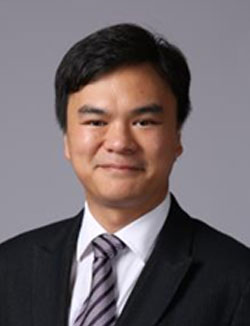
Hin-Iap Yip
City University of Hang Kong, China
Angus Hin-Lap Yip is a Professor at the Department of Materials Science and Engineering and the School of Energy and Environment at the City University of Hong Kong. He also holds the position of Associate Director at the Hong Kong Institute for Clean Energy. He is also an elected member of the Hong Kong Young Academy of Sciences. He obtained his BSc and MPhil in Materials Science from the Chinese University of Hong Kong and completed his PhD in Materials Science and Engineering at the University of Washington in 2008. From 2013 to 2020, he served as a professor at the State Key Laboratory of Luminescent Materials and Devices (SKLLMD) at the South China University of Technology (SCUT). In addition to his academic roles, Prof. Yip is the founder of two companies dedicated to advancing photovoltaic (PV) technology, with a strong emphasis on promoting renewable energy applications in urban environments. His research focuses on integrating materials, interfaces, and device engineering to enhance the performance of polymer and perovskite optoelectronic devices. With over 280 scientific papers, he has received more than 39,000 citations and has an H-index of 102. He has also been recognized as an ESI "Highly Cited Researcher" in Materials Science for nine consecutive years (2014-2022).
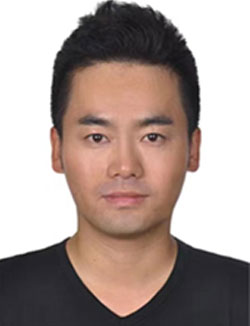
Lidong Zhao
Beihang University, China
Prof. Li-Dong Zhao graduated from University of Science and Technology Beijing in 2009 with doctorate degree in materials science, and engaged in postdoc research at Universite Paris-Sud and Northwestern University from 2009 to 2014. He joined Beihang University in 2014 and currently serves as deputy dean, professor in School of Materials Science and Engineering. He has won the 2015 Young Thousand Talents Program, 2016 Beijing Teacher Pioneer, 2017 International Thermoelectric Society (ITS) Young Investigator, 2018 Yangtze River Scholar of Ministry of Education, 2019 National Distinguished Young Scholars, 2019-2022 Clarivate Highly Cited Researchers, 2022 XPlore Prize, 2023 National Advanced Individual of Returned Overseas Chinese. He is currently a council member of Chinese Thermoelectric Society, Chinese Materials Research Society, the founding editor-in-chief of Materials Lab, and Board of Reviewing Editors of Science. He has won the Second Prize of Natural Science Award of the Ministry of Education (ranked 2nd), Second Prize of Science and Technology Award of China Materials Research Society (ranked 1st), and First Prize of the Shenzhen Natural Science Award (ranked 3rd).
Prof. Lidong Zhao is mainly engaged in the research of thermoelectric materials and devices, and the development of high-efficiency thermoelectric materials over wide temperature ranges by decoupling the electron and phonon transports. He has made pioneering academic achievements in the field of thermoelectricity. (1) He discovered a series of new thermoelectrics with intrinsic low thermal conductivity by utilizing the strong anharmonicity. (2) He extended high-efficiency thermoelectric properties to wide temperature ranges by promoting the multiple bands transport. (3) He developed the strategies of "two-dimensional (2D) phonon and 3D charge" transports and layered phonon-electron decoupling for out-of-plane performance enhancement. (4) He proposed the research idea of finding high-efficiency thermoelectrics in wide-bandgap semiconductors. (5) He presented the grid-design method and lattice plainification strategy to develop novel thermoelectric coolers with important application potential. The research team he led has made significant impact in the international thermoelectric field. So far, Prof. Zhao has published more than 290 papers in high-level journals including Nature (1) and Science (8), with more than 35,000 citations and an h-index of 87. He has been authorized more than ten national invention patents. His research results have been proved and utilized by related enterprises in thermoelectric power generation as well as electronic cooling, which provide broad application prospects in green energy fields.
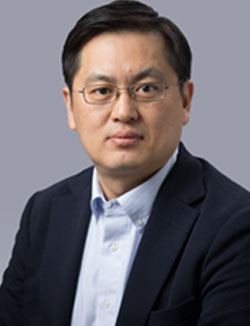
Shutao Wang
Technical Institute of Physics and Chemistry, CAS, China
Prof. Shutao Wang, the Head of Technical Institute of Physics and Chemistry, Chinese Academy of Sciences (TIPCCAS), Co-founder of the Center of Bio-inspired Smart Interfacial Science, Vice President of the School of Future Technology in University of Chinese Academy of Sciences. He is also the Associate Editor of ACS Nano, the Fellow of Royal Society of Chemistry, and the Fellow of Chinese Chemical Society. He received PhD degree (2007) in Institute of Chemistry, Chinese Academy of Sciences (ICCAS). He then worked at the University of California in Los Angeles as a postdoctoral researcher (2007–2010). He was appointed as a professor at ICCAS (2010–2014), and a professor at TIPCCAS since 2014. Prof. Shutao Wang is mainly engaged in the research of bio-inspired multi-scale interfacial materials with controlled adhesion, revealing the special interface adhesion phenomena and mechanisms in nature, designing and preparing a series of bio-inspired multi-scale interfacial materials with controlled adhesion, and exploring their applications in medical health, energy, environment and other fields. He has published over 280 SCI papers in journals including Nature, Nat. Mater., Nat. Commun., Sci. Adv., Adv. Mater., Angew. Chem., J. Am. Chem. Soc., PNAS, with more than 25,000 citations. He has authorized 22 Chinese patents and 2 US patents. He received many awards including Nano Research Young Innovators Award in Nanobiotech (45 under 45), Young Scientist Award of CAS (2017), Young Chemist Award of Chinese Chemical Society (2013), and many honors including National Science Fund for Distinguished Young Scholars (2014), Changjiang Scholars of the Ministry of Education (2016), Leading Scholar of “Ten Thousand Talents Plan” (2017), etc.
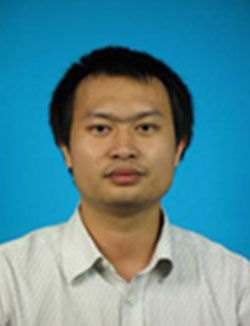
Lei Liao
Hunan University China
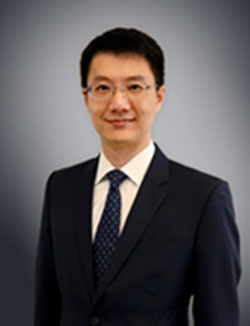
Zijian Zheng
The Hong Kong Polytechnic University, China
Prof. Zijian Zheng is currently Chair Professor of Soft Materials and Devices at the Department of Applied Biology and Chemical Technology, Associate Director of Research Institute for Intelligent Wearable Systems, Lead Investigator of Research Institute for Smart Energy at The Hong Kong Polytechnic University (PolyU). Prof. Zheng received his B. Eng. in Chemical Engineering at Tsinghua University in 2003, PhD in Chemistry at University of Cambridge in 2007, and postdoctoral training at Northwestern University in 2008-2009. He joined PolyU as Assistant Professor in 2009, and was promoted to tenured Associate Professor in 2013, Full Professor in 2017, and Chair Professor in 2023.
Prof. Zheng’s research has made a significant contribution to developing novel fibrous materials and devices for wearable electronics and energy. He has developed fundamental theory to address the interfacial stability challenge of soft conductors. Several novel conductive fibrous materials and technology including the Polymer Assisted Metal Deposition (PAMD) technology and the Liquid Metal Fiber Mat (LMFM) are signature works that represent some of the most advanced development of flexible and stretchable electronic materials in the field. These new materials have led to the birth of a number of high-performance wearable, on-skin attachable, and implantable types of electronic devices that not only excel in terms of their electronic functions and conformability with soft organs and tissues, but also outperform those thin-film-based devices in terms of long-term biocompatibility. These “breathable” fibrous devices are considered disruptive milestones. Prof. Zheng also extended the fibrous materials to flexible energy storage, which is another critical challenge to address in soft electronics, because all electronic devices require energy supply. He replaced traditional metal wires and foils in energy storage devices, such as batteries and capacitors, with metallic fibrous materials, which led to the record-breaking high-energy and flexible batteries and capacitors.
He has published more than 200 papers in journals such as Science, Nat. Mater., Nat. Comm., Adv. Mate., JACS, Angew. Chem.. He also files more than 40 patents and is recipient of more than 20 academic awards. He serves as Editor-in-Chief of EcoMat (impact factor: 14.6), a flagship open-access journal in green energy and environment published by Wiley. He is Chang Jiang Chair Professor by the Ministry of Education of China, Senior Research Fellow of the University Grant Commission of Hong Kong, Fellow of International Association of Advanced Materials, Fellow of the Royal Society of Chemistry. Prof. Zheng is Founding Member of The Young Academy of Sciences of Hong Kong, and Founding Member and Chairman of the Young Member Section of the Hong Kong Academy of Engineering Sciences.
3. IUMRS-Frontier Materials Graduate Students Award
| Name | Gender | Affiliation/ Country or Area | Title | Recommended by | |
|---|---|---|---|---|---|
| 1 | Hongjian Zhang | M | Institute of Ceramics, CAS, China | PhD candidate | Tao Deng,Chengtie Wu |
| 2 | Jiajun Sun | M | Zhejiang University, China | PhD candidate | Xu Baixiang, Chen Weiqiu |
| 3 | Yiming Xiang | M | University of Hong Kong, China | PhD candidate | Kelvin Yeun, Shuilin Wu, Xiangmei Liu |
| 4 | Swapnadeep Poddar | M | Hong Kong University of Science and Technology, China | Post Doctor | Leilei Gu,Ziyong Fan |
| 5 | Sumei Han | F | University of Science and Technology Beijing, China | PhD candidate | Tan Chaoliang, Wenbin Cao,Qipeng Lu |
| 6 | Hongye Hao | M | Zhejiang University, China | Post Doctor | Jian Ji,Shen Jiacong |
| 7 | Jueying Yang | F | Beijing Institute of Technology, China | PhD candidate | Yu Chen, Jiatao Zhang, Nam-joon Cho |
| 8 | Binchao Qing | M | Beihang University, China | PhD candidate | Jiehe Shui, Jiaqing He |
| 9 | Xing Li | M | Fudan University, China | Post Doctor | Yongfeng Mei, Xun Cao, Zengfeng Di |
| 10 | Zhenghao Long | M | Hong Kong University of Science and Technology, China | PhD candidate | Ziyong Fan, Xiaosheng Fang |
| 11 | Liang Gao | F | University of Science and Technology of China | MSC candidate | Zijian Zheng |
| 12 | Yanpeng Wang | M | Ocean University of China | PhD candidate | Wei Liu, Yongcheng Jin |
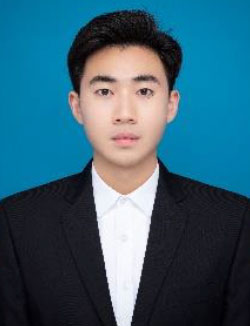
Hongjian Zhang
Shanghai Institute of Ceramics, CAS, China
Research field: 3D printing of bioactive materials for tissue regeneration
E-mail: zhanghj1202@163.com
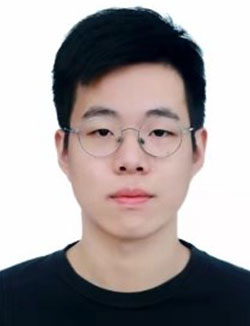
Jiajun Sun
Zhejiang University, China
Research field: Smart materials and magnetic topology; Spin dynamics; Straintronics
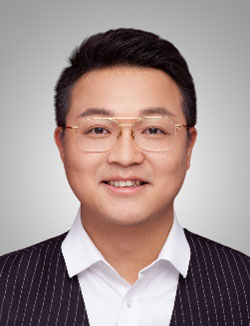
Yiming XIANG
The University of Hong Kong, China
Research field: Microneedles design, antibacterial materials, biomaterials, nano bionic scaffold material, skin tissue engineering and interfacial biology.
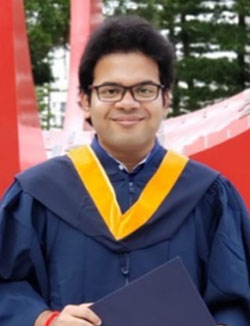
Swapnadeep Poddar
Hong Kong University of Science & Technology, China
Research field: nanostructured perovskite based electronic devices
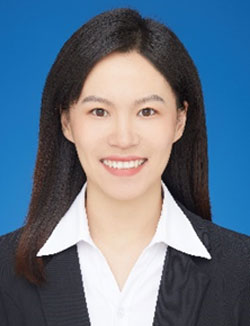
Sumei Han
University of Science and Technology Beijing, China
Research field: design and synthesis of novel nanomaterials for applications in renewable energy technologies
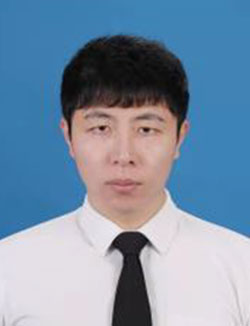
Hongye Hao
Zhejiang University, China
Research field: high throughput screening, biodegradable materials for soft tissue engineering
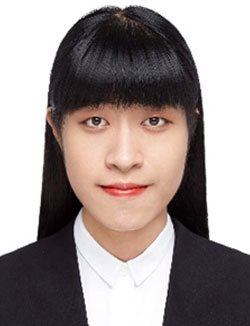
Jueying Yang
Beijing Institute of Technology, China
Research field: The preparation of physically crosslinked hydrogels, the applications of natural polymers
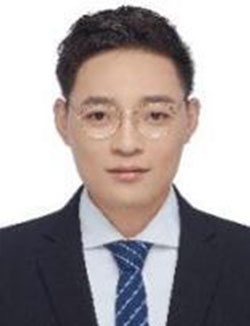
Bingchao Qin
Beihang University, China
Research field: synthesis and performance optimization on SnSe crystalline thermoelectrics and other IV-VI compounds with intrinsically low thermal conductivity
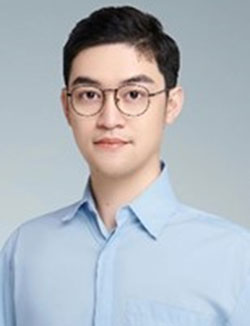
Xing Li
Fudan University, China
Research field: Phase Change Material VO2
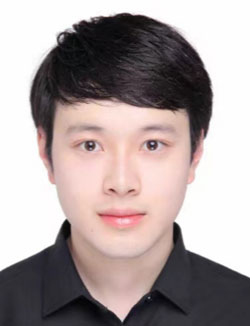
Zhenghao Long
Hong Kong University of Science and Technology, China
Research field: Design and fabrication of hemispherical optoelectronic nanowire based bionic eye devices and neuromorphic optoelectronics with efficient in-device computing
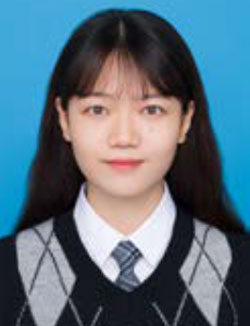
Liang Gao
University of Science and Technology of China, China
Research field: Design and properties of elastic organic ferroelectric materials
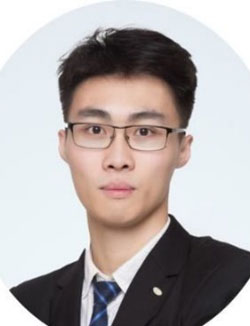
Yanpeng Wang
Ocean University of China, China
Research field: Silicon Anode Materials for Lithium-ion Batteries



